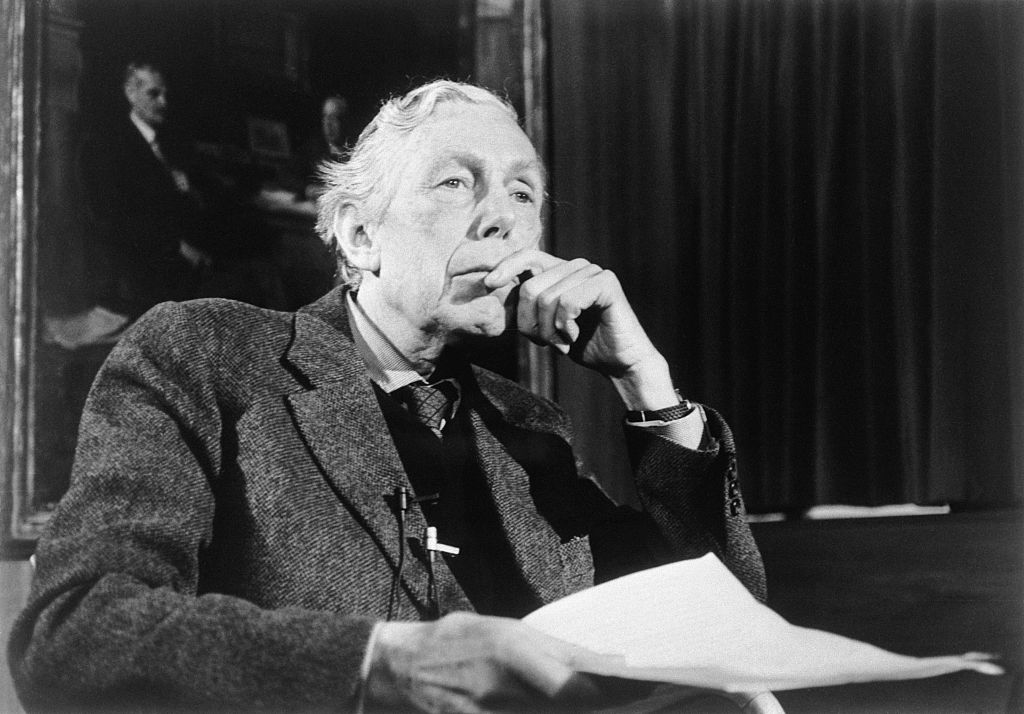In economic theory, the term “middle-income trap” describes a scenario where a country struggles to ascend beyond a certain developmental threshold. In much the same way, Poland appears to be caught in what could be termed a “middle-sovereignty trap.”
The cause is not just a result of external pressures. It is also shaped by foreign influences on domestic politics – in particular, foreign ownership of media, which I will come to in a moment – and a deficiency in technocratic expertise among the elite.
Worse, Poland has a dependent mindset that pervades national strategy.
Unlike countries such as France, which exhibit robust sovereignty with political, economic, and cultural autonomy, Poland faces challenges that prevent it from achieving a similar level of self-determination.
These challenges are many. They involve not only geopolitical positioning but also internal policy weaknesses. More, they involve a historical reliance on external entities which have hindered its capability to be sovereign.
During the late 18th century, the partitions of Poland saw the nation divided and ruled by the Russian Empire, the Kingdom of Prussia, and the Habsburg Monarchy. This history eroded Poland’s autonomy and established a long-term dependency on foreign powers.
This dependency continued into the Cold War, as Poland became a Soviet satellite state, heavily reliant on the USSR for political guidance and economic resources. The structures and habits acquired over all this time have still not disappeared.
This means Poland’s sovereignty is compromised. The country is left in a precarious position where it neither fully aligns with the top sovereign states nor completely lacks independence. Rather, it lingers in a state of semi-dependence.
To comprehend the complexities of Poland’s struggle for greater self-determination, one must consider the influence of foreign media ownership in the country. Significant segments of Polish media are controlled by international corporations. They play a pivotal role in shaping public opinion and, consequently, national policy.
Prominent among these are entities such as the German Axel Springer group, which owns major outlets including Onet, Newsweek Poland, Forbes Poland, and Business Insider Poland, among others.
Additionally, the American-owned TVN group, part of Discovery, holds considerable sway over television broadcasting.
The influence extends to print media as well, with the second largest newspaper, Rzeczypospolita, being linked to investments by George Soros, while the largest newspaper, Gazeta Wyborcza, was founded by members of the former communist elite.
These media outlets are perceived to have a clear political bias, generally supporting Donald Tusk and his political alignment. They often portray the Law and Justice party (PiS) in a negative light.
In response to these concerns about media influence and to bolster national control over its media landscape, PiS proposed legislation aimed at ensuring that at least 50% of the capital in Polish media companies is held domestically.
However, this initiative faced considerable pushback from international actors, reflecting the geopolitical and economic pressures that complicate Poland’s pursuit of greater media sovereignty.
In France, the media sector is predominantly controlled by national entities. French regulations promote local ownership and governance, ensuring that the majority of media outlets are held by French companies or nationals. This is reflected in the ownership structures of leading French media conglomerates such as Groupe Bouygues, which owns TF1, and Vivendi, which controls Canal+.
Additionally, the French government enforces stringent regulations through bodies like the Superior Audiovisual Council (CSA), which oversees broadcasting and ensures compliance with French standards.
On top of this, as is typical in France, these standards and regulations are so complicated that only the French can understand them.
Donald Tusk is often highlighted as a prime example of a leader within Poland’s semi-colonial system. He is widely considered to be significantly influenced by foreign media and external interests. Critics argue that his political ascent and sustained influence are the result of these external powers.
On the other side, the Law and Justice Party (PiS), leaders of the last government, has also faced criticism for its handling of national issues. Detractors pointed out a lack of vigour in its initiatives.
A prominent example of this is the issue of war reparations from Germany. While PiS has boldly demanded €1.7 trillion for damages inflicted during World War II, it has notably refrained from pursuing international recognition of the genocide committed against 3m ethnic Poles during the war.
This omission, coupled with the absence of a substantial international communication campaign to build global awareness and support for the issue, underscores a lack of comprehensive strategy in their approach.
This strategy—or lack thereof—suggests a disconnection between the party’s large ambitions and its execution on the international stage.
More, Poland has never proposed major initiatives to improve the European Union. It behaves like a tenant.
Neither ruling party has tried to fight for Poland’s interests other than in a passive way, accepting or rejecting other countries’ proposals.
From this point of view, both political parties have behaved towards France and Germany in a subordinate manner.
It is possible that France and Germany would have rejected Polish proposals, but the Union also consists of other countries which Poland could influence.
Poland may influence the shaping of European policies to a certain extent, but this never stems from its own decision to promote its national interest.
Poland is not trying to shape the Union in its favour. It must be acknowledged that Poland was and unfortunately still is a subordinate state.
PiS also ruled a subordinate state. A subordinate state has limited room for manoeuvre, but it is supposed to use that room for manoeuvre. The Third Polish Republic never did this to its full potential. It either steered itself under the command of the European Union and Germany, or it stuck in the same passive way in a defensive posture, believing that rejecting what the powers wanted to impose on it was enough.
It is difficult to make the transition from fighting for independence to building a strong Poland. Poland’s biggest problem is that it lacks an elite, a technocracy, people who know how to develop the country on a practical level.
The development of a national ruling elite, capable of managing the state with efficiency, is crucial for Poland. Institutions such as the National School of Public Administration (KSAP), tasked with educating senior civil servants, are pivotal in this context.
However, KSAP’s current budget of approximately PLN 10m (€2.34m) is markedly inadequate for the substantial responsibilities it holds in preparing competent state leadership. In contrast, the French Institut National du Service Public operates with a budget of around €45m (approximately PLN 200m).
Poland finds itself in a “middle-sovereignty trap” where external influences and a lack of a proactive, technocratic elite hinder its path to full sovereignty. For Poland to transition from its current state to a sovereign nation, a comprehensive overhaul of its governance and policy-making infrastructure is essential.





If Russia takes Ukraine, there will be 30 years of insurgency